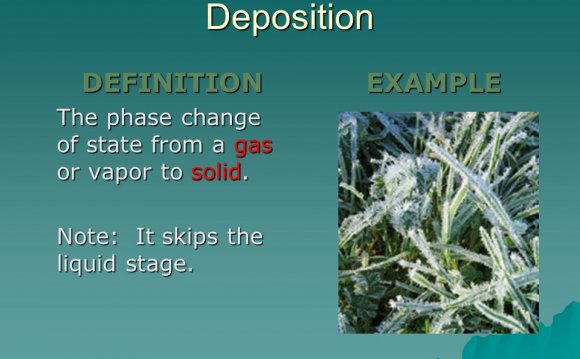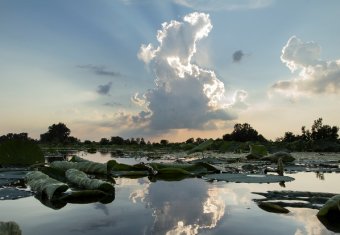
 The Nature Conservancy’s Erie Marsh Preserve contains 11 percent of the remaining wetlands in southeast Michigan. Photo credit: Jason Whalen/TNC
The Nature Conservancy’s Erie Marsh Preserve contains 11 percent of the remaining wetlands in southeast Michigan. Photo credit: Jason Whalen/TNC
The Study: Petersen, B., K.R. Hall, K. Kahl, P.J. Doran. (2013) In Their Own Words: Perceptions of Climate Change Adaptation from the Great lakes Region’s Resource Management Community. Environmental Practice.15 (4) 371. doi: 10.1017/S000446
Pop quiz! Define “climate adaptation.”
Did your definition include response to current changes? Future changes? Did it include the idea of reducing risk? Did you have something gradual or disruptive in mind? Did it include explicit planning? What actions would your definition would imply?
If you’re a little fuzzy on the definition of adaptation, you’re not alone, say the authors of a recent journal article on perceptions of climate change adaptation among resource managers in the Great Lakes area. The ambiguity has significant consequences, because the actions that many resource managers cite as adaptation turn out to be not very different than what they are already doing, says the paper’s lead author, Brian Petersen, an interdisciplinary social scientist at Western Michigan University.
“Many of the definitions are so all inclusive, ” says Petersen. “It’s as if everything is adaptation. But if everything is adaptation, then nothing is adaptation.”
So is adaptation really going on at the resource management level?
The Good News: There’s an Increase in Awareness
Piggybacking on a broad process to develop biodiversity blueprints for the Great Lakes region, Petersen and Conservancy scientists Kimberly Hall and Patrick Doran surveyed 441 planners and resource managers from state, local, and federal agencies, academic and research institutions, NGOs and private sector stakeholders. The survey asked respondents to define adaptation and give specific examples of adaptation actions that are feasible, planned or underway.
Managers are talking and thinking more about climate change, it turns out. Almost three-quarters of respondents said that they are discussing climate at work more often than five years ago — and over half said that their organizations are re-assessing missions, goals, and strategies in light of climate change.
Over half the respondents also came up with definitions of adaptation that included some indication of intentional action and response to climate change impacts (the minimum standard that the researchers accepted as defining “adaptation”). Definitions scored as ‘vaguely adaptive’ or ‘not adaptation’ mainly described actions to reduce greenhouse gas emissions (mitigation) or the process of evolutionary adaptation.
YOU MIGHT ALSO LIKE












